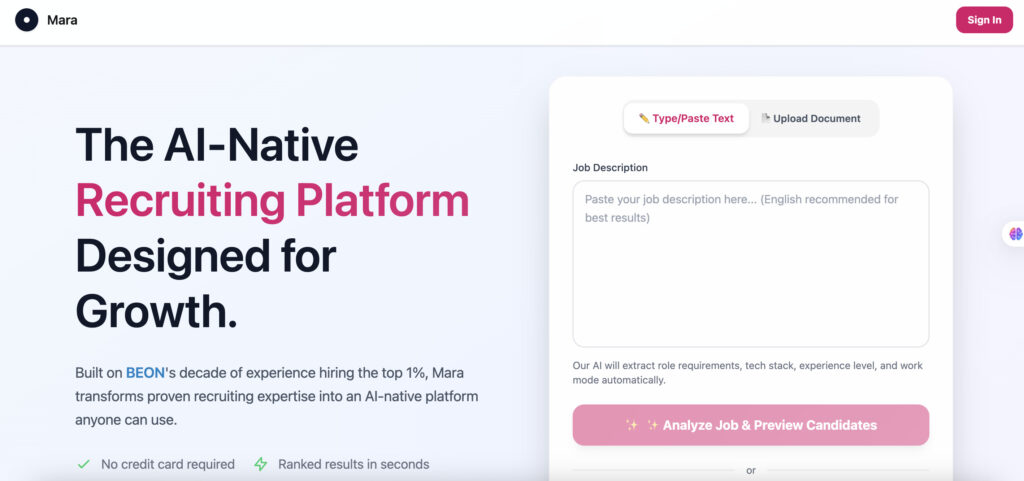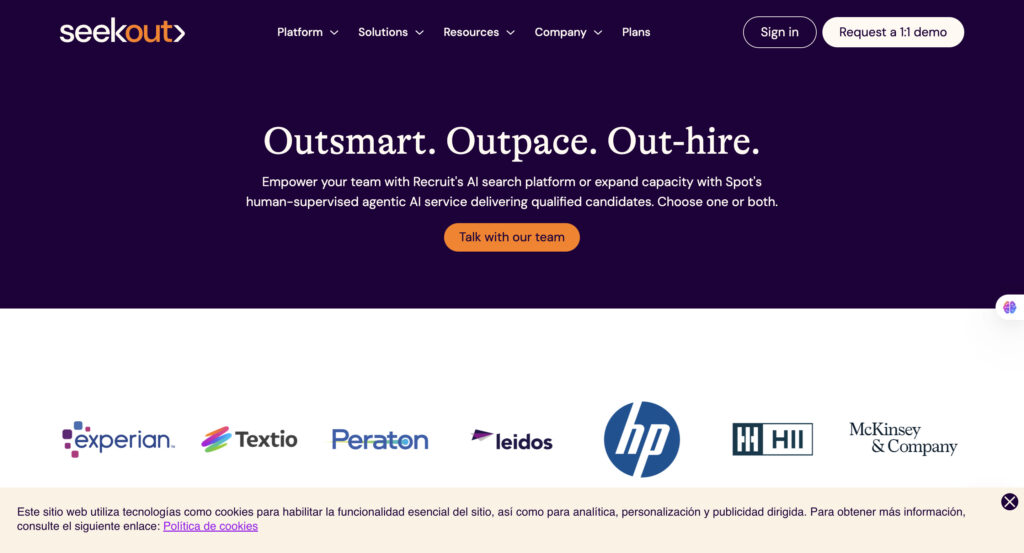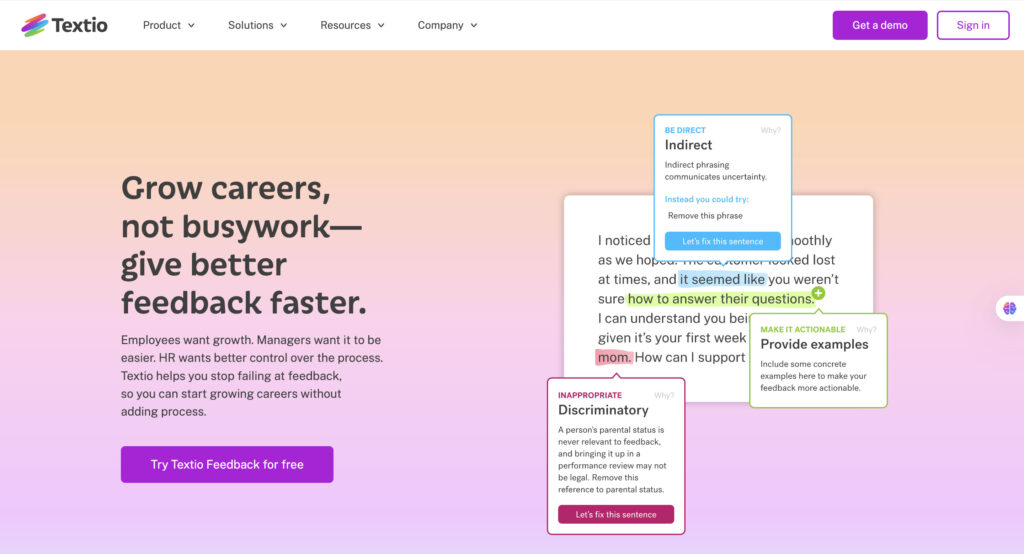HR decision-makers in tech are facing a seismic shift in how hiring gets done. AI in recruiting automation – the use of AI-driven tools and autonomous agents to streamline hiring – is moving from buzzword to baseline. In fact, 37% of firms are integrating generative AI into their HR processes (up to 27% a year prior. Plus 73% of TA professionals agree that AI is changing the way of hiring.
This wave of AI recruiting tools promises faster hiring cycles, better candidate matches, and more efficient workflows. But how exactly are AI and autonomous AI agents changing tech recruitment, and what should HR teams do to harness this potential? In this post, we’ll explore how AI tools for HR are transforming each step of the hiring workflow.
The Rise of AI in Recruiting Automation
Recruiting has always been data-intensive and time-consuming. Traditional methods struggle to keep up with today’s fast-paced tech talent market. That’s where AI in recruiting automation comes in. At its core, AI recruiting means applying machine learning, natural language processing (NLP), and data analytics to optimize hiring – from sourcing and screening to engagement and interviewing.
Modern AI-powered recruiting platforms can scan millions of profiles to identify promising software engineers, parse resumes in seconds, and even conduct initial assessments. For example, LinkedIn and other job platforms have introduced AI agents to help recruiters find and screen candidates.
These systems can:
- Learn from historical hiring data to predict which candidates will succeed,
- Flag high-potential talent that might be overlooked by manual review.
- Analyze video interviews for communication skills or cultural fit.
- Use chatbots to answer candidate FAQs and schedule interviews automatically.
One of the most advanced developments is agentive AI – essentially digital “recruiter assistants” that operate semi-autonomously alongside humans. Imagine an AI agent that not only filters resumes based on criteria, but adapts those criteria in real-time based on feedback from your engineering team. Deloitte describes a future where multiple AI agents manage specific hiring tasks across the end-to-end process with minimal human intervention.
We’re already seeing early versions of this: AI scheduling assistants that handle all interview logistics, or screening bots that engage candidates in chat, then alert a human recruiter only when a qualified candidate is ready for review. These autonomous agents free up recruiters to focus on strategy and relationship-building, rather than repetitive admin tasks.
How AI Recruiting Tools Are Improving the Hiring Workflow
AI is making an impact at every stage of tech hiring. Let’s walk through the key workflow stages and how AI recruiting tools are changing the game:
- Sourcing and Talent Discovery: Traditionally, finding great developers meant scouring resumes and LinkedIn for hours. Now, AI-driven sourcing tools automatically crawl job boards, social networks, and public code repositories to identify candidates with the right skills. These tools can analyze profiles for programming languages, past projects, even GitHub activity, to surface passive candidates who match your needs. By automating sourcing, AI widens the talent pool – often uncovering talent in non-traditional markets.
- Resume Screening and Shortlisting: Instead of manually reading hundreds of resumes for a software engineer role, recruiters can leverage AI resume screening. Machine learning models instantly parse resumes and rank candidates against job requirements. This dramatically accelerates the funnel. Crucially, these algorithms can be tuned to focus on skills and experience rather than proxies like school or past employer – helping to surface non-obvious candidates who may be high performers.
- Candidate Matching and Skill Fit: Going beyond keywords, AI can predict which candidates will be the best fit for a role. Advanced tools digest thousands of data points (skills, project experience, assessments, etc.) to gauge a candidate’s probability of success in a specific position. This improves quality-of-hire by reducing mismatches.
- Candidate Outreach and Engagement: First impressions matter, and AI is helping recruiters ensure every candidate gets timely, personalized communication. AI-powered outreach tools can:
- Craft custom-tailored emails or InMails to candidates,
- Highlight the aspects of a job that aligns with that person’s background,
- Answer candidate questions 24/7 and
- Conduct initial screening Q&As via chats.
This keeps candidates engaged and informed without adding workload to HR staff. Importantly, it addresses the long-standing candidate complaint of being “ghosted” or left in the dark.
- Interview Scheduling and Screening: Calendaring interviews with multiple stakeholders can be a logistical nightmare. AI scheduling agents like Calendly’s AI or Paradox’s Olivia chatbot take over this task, finding mutually convenient slots and sending calendar invites automatically. Meanwhile, AI video interview platforms allow candidates to record interviews asynchronously, which an AI can then evaluate for certain skills or competencies. Some systems even analyze facial expressions or voice tone (within ethical limits) to provide additional insights to human interviewers.
- Assessment and Selection: AI-driven coding tests and technical assessments can quickly evaluate an engineer’s skills. For example, AI code review tools can score a candidate’s coding challenge automatically. On the qualitative side, AI can transcribe live interviews and flag key topics that were or weren’t discussed. Recruiters and hiring managers get data-backed evaluations rather than relying purely on gut feel.
- Onboarding and Beyond: The automation doesn’t stop at the offer letter. Some organizations deploy AI to kickstart onboarding: personalized welcome portals, automated IT setup, even “buddy” chatbots that answer new hires’ common questions. This speeds up time-to-productivity for new employees and frees HR to focus on high-touch activities.
By integrating AI at these stages, companies create a recruiting assembly line where humans and machines each do what they do best. The tedious filtering and scheduling is handled by algorithms; the nuanced interviewing, relationship-building, and final judgment call remain firmly human.
AI Recruiting Solutions to Know for Efficient Tech Hiring
With so many AI solutions available, how do you know which ones actually support better tech hiring? Here’s a breakdown of some of the leading AI-powered platforms that help IT recruiters and hiring managers find, qualify, and secure top technical talent.
Mara by BEON.tech

Mara is an end-to-end AI recruiting platform built by BEON.tech, designed specifically for tech hiring. Initially developed to accelerate BEON’s own process of hiring elite LATAM engineers, Mara transforms a job description into a shortlist of ranked, qualified candidates within seconds. It merges a decade of BEON’s human expertise in sourcing top 1% talent with AI-driven automation — making it a practical, agentive assistant for HR teams. Unlike generic recruiting software, Mara learns continuously from user feedback and adapts to company-specific hiring goals while keeping recruiters in full control.
Key Features
- Instant AI sourcing: Paste a software engineering job description and instantly receive ranked matches based on skills, seniority, and location.
- Smart filtering: Eliminate noise and zero in on top candidates through dynamic filters.
- Integrated outreach: Reach out directly from the platform with personalized, automated email sequences.
- Adaptive vetting: Automated resume review and red-flag detection.
- Coming soon: AI-based technical assessments, soft-skill video Q&As, automated interviews, and ATS integration.
Mara’s strength lies in its agentive AI, capable of autonomously executing recruiting tasks while learning from every interaction. It’s backed by BEON.tech’s proven expertise in nearshore engineering talent and prioritizes quality over quantity, delivering curated shortlists instead of floods of irrelevant resumes.
Pros: Learns continuously; built by real recruiters; combines automation with human oversight; full-cycle recruiting (from sourcing to onboarding).
Cons: Focused on engineering roles; still rolling out integrations and advanced modules.
Eightfold AI

Eightfold AI is a global leader in AI in recruiting automation, powered by deep-learning algorithms that uncover both active and passive candidates. Its platform identifies “hidden” tech talent by analyzing skills, career trajectories, and potential fit — even recommending internal mobility paths to retain employees. It also has an AI Interviewer, capable of running structured screening interviews autonomously.
Key Features
- Predictive candidate matching: Evaluates data points beyond keywords.
- Talent rediscovery: Re-engages qualified candidates already in your database.
- Diversity analytics: Monitors DEI metrics and minimizes bias in recommendations.
- Internal mobility mapping: Helps reallocate or upskill existing employees.
- AI Interviewer: Conducts initial interviews, analyzing responses for skill and role fit.
Pros: Best-in-class DEI tools; powerful analytics for large enterprises; exceptional predictive accuracy.
Cons: High cost and complex setup; needs large datasets for optimal performance.
HireEZ

Formerly Hiretual, HireEZ has evolved into an all-in-one AI sourcing and recruiting platform. It aggregates more than 750 million profiles from across the web, helping you find passive candidates — especially engineers outside typical channels like LinkedIn. Its “EZ Agent” automates sourcing, screening, and outreach workflows, and the Applicant Match feature ranks inbound applicants automatically.
Key Features
- Massive candidate database: Aggregates data from 45+ online sources with verified contact info.
- AI sourcing and Applicant Match: Instantly ranks candidates by fit.
- Automated outreach and scheduling: Multi-stage email sequences and self-scheduling options.
- ATS/CRM integration: Syncs with 30+ systems, including Greenhouse and Lever.
- Analytics dashboard: Real-time insights into pipelines and market benchmarks.
Pros: Good for passive sourcing; robust integrations; comprehensive analytics.
Cons: Primarily outbound-focused; learning curve for advanced features; pricing scales with usage.
SeekOut

SeekOut is an AI recruiting solution built for uncovering specialized and diverse technical talent. With a database exceeding 800 million profiles (including over 40 million in tech), it sources candidates from LinkedIn, GitHub, academic publications, and patents.
Key Features
- Comprehensive talent data: Includes open-source contributions, Stack Overflow activity, and publication history.
- Generative AI sourcing: Uses natural language prompts to create search filters and candidate recommendations.
- Diversity recruiting tools: Enables blind screening and diversity-focused analytics.
- Talent rediscovery: Integrates with ATS to re-engage past candidates.
Pros: Excellent for hard-to-fill tech roles; advanced diversity tools; AI-assisted searches save time.
Cons: Enterprise pricing; sourcing-focused (no built-in assessment tools).
Paradox (Olivia)

Paradox offers Olivia, a conversational AI recruiting assistant that automates candidate engagement, pre-screening, and interview scheduling. Olivia interacts with candidates through mobile chat or web, answering FAQs and coordinating meetings 24/7 — ideal for high-volume or time-sensitive hiring.
Key Features
- AI-powered chat: Engages candidates via text or web chat instantly.
- Scheduling automation: Syncs calendars and sets interviews without manual coordination.
- FAQ automation: Answers candidate questions and escalates complex ones to humans.
Pros: Drastically improves candidate response time; simple to integrate with major ATS tools.
Cons: Best for volume recruiting; limited depth for senior or niche technical roles.
Textio

Textio is an AI tool for HR focused on communication rather than sourcing. It analyzes job postings and emails to make them more inclusive, engaging, and bias-free. By using NLP to detect exclusionary or off-putting language, Textio helps companies attract broader, more diverse candidate pools — an essential complement to technical sourcing tools.
Key Features
- Real-time bias detection: Flags non-inclusive wording and offers alternatives.
- Copy optimization: Improves clarity and appeal of job ads.
- Performance scoring: Predicts engagement rates and suggests edits based on historical performance.
Pros: Promotes inclusive language; enhances employer brand; easy to use.
Cons: Narrow scope; doesn’t assist with sourcing or candidate screening.
| Tool | Primary Focus | Key Strengths / Features | Ideal For | Limitations | Unique Advantage |
| Mara by BEON.tech | End-to-end AI recruiting automation | Instant AI sourcing, smart filters, adaptive vetting, in-platform outreach; future modules for technical & soft-skill assessments | Tech companies hiring engineers across LATAM or remote markets | Still expanding integrations; focused on engineering roles | Agentive AI built by real recruiters; merges human expertise with automation |
| Eightfold AI | Predictive talent intelligence | Deep-learning candidate matching, internal mobility, AI interviewer, DEI analytics | Enterprise HR teams with large data sets | High cost, complex setup | Combines predictive modeling and fairness auditing for large-scale hiring |
| HireEZ | AI-powered sourcing and CRM | 750M+ profiles, verified contact info, Applicant Match, multi-stage email outreach, ATS integration | Recruiters sourcing passive candidates | Outbound-heavy; learning curve for advanced filters | Access to one of the largest global candidate databases |
| SeekOut | AI sourcing & diversity hiring | 800M+ profiles, GPT-driven “SeekOut Assist,” diversity analytics, blind resume review | Companies hiring niche or hard-to-find engineers | High pricing; sourcing-focused | GPT-powered assistant that automates search strategies and outreach |
| Paradox (Olivia) | Conversational AI for candidate engagement | 24/7 chat assistant, FAQ automation, interview scheduling | High-volume roles or first-round screening | Limited use for senior or niche tech hiring | AI chatbot that automates communication and scheduling end-to-end |
| Textio | Inclusive content optimization | Real-time bias detection, job ad rewriting, engagement scoring | HR teams refining job ads or employer brand messaging | Doesn’t source or screen candidates | Improves language inclusivity and conversion in hiring content |
Transform Your Tech Hiring with AI-Powered Precision
Ready to see how autonomous recruiting can revolutionize your talent acquisition? At BEON.tech, we’ve combined a decade of human expertise with AI-driven automation through Mara, our intelligent recruiting assistant built for tech hiring. Cut sourcing time from weeks to minutes, uncover top 1% LATAM engineers, and stay fully in control while AI does the heavy lifting.
Start hiring smarter with Mara today. Book a Demo or Hire Your Next Developer with us.
FAQs
How can AI be used in recruitment?
AI can streamline recruitment by automating repetitive tasks like resume screening, interview scheduling, and candidate communication. It analyzes large volumes of applicant data to identify the best matches based on skills, experience, and cultural fit. Many companies also use AI chatbots to engage candidates 24/7, answer questions, and guide them through application steps. In regions like the U.S. and Latin America, AI tools help recruiters manage high-volume hiring efficiently while improving candidate experience.
What is the future of AI in recruiting?
The future of AI in recruiting is about strategic enablement, not replacement. As AI becomes more advanced, it will handle data-heavy tasks—like candidate matching, predictive analytics, and skills assessments—so recruiters can focus on relationship-building and employer branding. Nearshore and hybrid hiring models, especially between the US and Latin America, will benefit from AI tools that match candidates across borders and time zones with greater precision.
What is one key application of AI in recruitment?
One major application is AI-powered candidate screening. Algorithms can evaluate resumes and online profiles to shortlist applicants who best fit a role’s requirements, reducing manual review time. This speeds up hiring and minimizes bias by focusing on verified skills and experience rather than subjective factors.
Can recruiters tell if you use ChatGPT?
Sometimes. If a candidate copies AI-generated text without editing, recruiters or hiring tools may notice repetitive phrasing or generic tone. However, if ChatGPT is used thoughtfully—for brainstorming, improving clarity, or refining tone—it’s often undetectable and even beneficial. The key is transparency: many HR teams encourage candidates to use AI responsibly while keeping their authentic voice.

